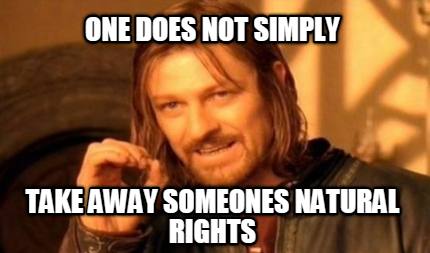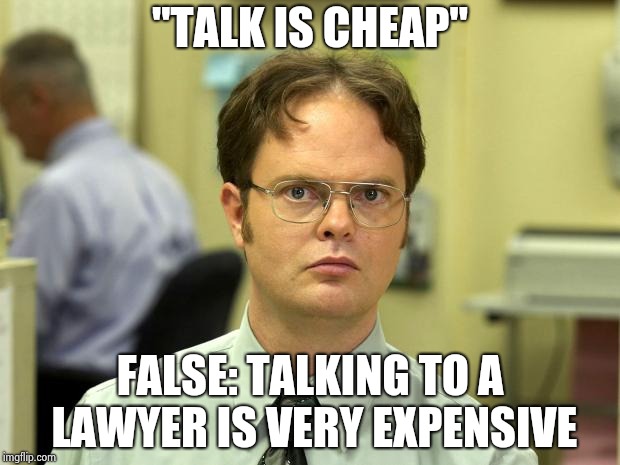

Constitution,Criminal
Why Malaysians don't want the death penalty
Not published yet ago Matdura S.
Talks on abolishing the death penalty is expected to have it’s own stand as it is finally going to be tabled at the next Dewan Rakyat sitting. Although this topic has divided Malaysians due to our differences in thoughts and opinions, this article focuses on why most Malaysians don’t want the death penalty.
The death penalty is also known as capital punishment or execution, where the sentence is imposed by the courts as punishment for a crime. In Malaysia, there are 17 crimes punishable under the death sentence, and some are defined as mandatory death sentences while others are discretionary.
Some of these offences include waging war against the Yang di-Pertuan Agong, terrorism, murder, possessing and using firearms as well as rape leading to death. Statistically, there are more than 1,100 people to have received the death sentence in Malaysia.
[Read more: What happens if Malaysia abolishes the death sentence]
1. The death penalty cannot be undone

There are some instances where the courts have given a wrongful judgement, especially when the case is presented in the High Court level. There is almost no chance to overturn the case once the said offender has been convicted for the crime in the High Court level itself. This is simply because the finding of facts may not be altered at the Federal Courts as new facts cannot be adduced in an appeal.

Based on the statistics above, it is pretty evident that there is a rather low number of cases that have been overturned in the Federal Courts for death penalty cases across Malaysia. The standard for criminal prosecution is ”beyond reasonable doubt”. However, there seems to be a lot of grey area in this and these are the case laws based on death penalty cases.
A Thai national was charged and convicted for trafficking heroin despite denying the crime, which led her to be falsely convicted for the death penalty. Below is an excerpt cited by a prominent defence lawyer, Samantha Chong:
“If you are convicted at the High Court, your fate is almost sealed. The Federal Court’s judgement is simple, ‘You should have presented this new argument at the High Court’ and so they will disallow it.” – Samantha Chong Yin Xin, lawyer at the National Legal Aid Foundation.
She (the Thai National) later discovered that her statement had been falsified by police to say she claimed ownership of the bag. And the lawyer representing her did not communicate effectively with her on her defence. Through incompetence and language barrier, she was only minimally involved in the case.
Cases where people denied but were found guilty. States found guitly then considered not guilty. refer to cases. standrd to find someone guilty? or other cases for overturning. Nepalis case where man charged for not being in country for no docs then went to jail but cts were wrong.
2. It doesn’t comply with the Human Rights Act.

It is said that Malaysia has a lack of transparency when it comes to sentencing someone to death. Along with countries like Indonesia and Japan, neither the prisoners, their families or their lawyers are informed of the upcoming execution. Executions are done in secrecy, where the public does not get sufficient information on the executions that are undertaken.
“Malaysia is neither a party to the International Convention on Civil and Political Rights (ICCPR) nor its Second Optional Protocol aiming at the abolition of the death penalty (1989). In March 2014, Malaysia rejected all recommendations to establish a moratorium on executions and abolish the death penalty made by fellow UN-member states at the UN Human Rights Council’s Universal Periodic Review, aimed at improving the country’s human rights situation.” – Quoted from Amnesty Malaysia International
wrong point. Msia no Human Rights. Doesnt comply with international human rights standards.
Pressure has also come from several international bodies towards Malaysia to abolish the death penalty and seek alternatives to the capital punishment. Perhaps, we may see further improvement once
3. Doesn’t bring closure to the victim and offender’s families. s173 of the CPC

Yes, you read it right. The victims families. Due to the countless appeals and hearings, the proceedings for capital punishment can take years. Families are left thinking about tragic events and it mentally affects them for a long period of time. There really is no time for healing during those times. Too risky coz not all want healing but some want justice
As for the offender’s families, the social stigma that falls upon their families brands them as criminals too. Their spouses, children and relatives have to deal with the backlash from society, which drives them to push away, or even completely cutting ties with the offender behind bars. Why he was in jail? Reporter covered an interview with prisoners and came across this guy and hs story then quote the story.
the Taiwan NGO argument on putting them to death, but
4. Defence for death penalty cases are more expensive than imprisonment. When it comes to ecomy, look at numbers. from this point its about 2000 plus and the inmate’s body disposal.

Look for alternatives, LV KEONG
Contrary to popular belief, the death penalty is considered more expensive than keeping the offender in prison. Before you think this article is utter rubbish and decide to stop reading, let us explain.
This is simply because, the overall cost of defending the offender in a death penalty case is relatively much higher than defending a case that does not carry the sentence of death. And this is only before appeals are made. Imagine the amount of time and money being exhausted for just one death penalty defence.
So, it costs approximately RM1,975 to end the life of an inmate plus an additional cost of RM800 if the family member does not claim the body. And with almost 65,222 inmates nationwide, try and make a rough estimation on how much money is being spent by the government just on death penalty inmates.
Also, the offender is not put to sentence IMMEDIATELY once he/she is charged. A Malaysian death-row inmate who was interviewed by Malaysiakini has waited for 7 years for his sentence to be carried out. – the wait is probably more excruciating than the death sentence itself. Read more on other death row inmates and their stories here.
5. No concrete proof that the death penalty deters crime.

There is no definitive answer that the death penalty deters crime rates. However, there has been discussion on abolishing the death penalty for some cases, but maintaining it for others.
Perhaps the alternatives, such as life imprisonment can be deemed to be sufficient for some, but not all offences. There have been proposals for other methods too – Rehabilitation, restorative justice and community services are among them. But of course, the alternate sentence should be rational to the crime committed.
Most of us are probably aware of 29 year old Muhammad Lukman, who was sentenced to death for possessing, processing and distributing medical marijuana. However, due to the immense pressure from the public to remove him from the death sentence, his case and sentencing has been put on hold. Many ministers, human rights activists and the general public as a whole were behind his back during his trial in 2018. Could this justify that Malaysia is finally ready put an end to death sentence for certain cases?
clarity of points
slippery slope arguments
These are other ppls arguments (common arguments)
Very aunty-social.